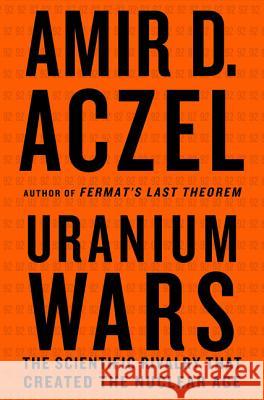Uranium Wars: The Scientific Rivalry That Created the Nuclear Age » książka
Uranium Wars: The Scientific Rivalry That Created the Nuclear Age
ISBN-13: 9780230103351 / Angielski / Miękka / 2010 / 256 str.
Uranium, a nondescript element when found in nature, in the past century has become more sought after than gold. Its nucleus is so heavy that it is highly unstable and radioactive. If broken apart, it unleashes the tremendous power within the atom--the most controversial type of energy ever discovered.
Set against the darkening shadow of World War II, Amir D. Aczel's suspenseful account tells the story of the fierce competition among the day's top scientists to harness nuclear power. The intensely driven Marie Curie identified radioactivity. The University of Berlin team of Otto Hahn and Lise Meitner--he an upright, politically conservative German chemist and she a soft-spoken Austrian Jewish theoretical physicist--achieved the most spectacular discoveries in fission. Curie's daughter, Irene Joliot-Curie, raced against Meitner and Hahn to break the secret of the splitting of the atom. As the war raged, Niels Bohr, a founder of modern physics, had a dramatic meeting with Werner Heisenberg, the German physicist in charge of the Nazi project to beat the Allies to the bomb. And finally, in 1942, Enrico Fermi, a prodigy from Rome who had fled the war to the United States, unleashed the first nuclear chain reaction in a racquetball court at the University of Chicago.
At a time when the world is again confronted with the perils of nuclear armament, Amir D. Aczel's absorbing story of a rivalry that changed the course of history is as thrilling and suspenseful as it is scientifically revelatory and newsworthy.











